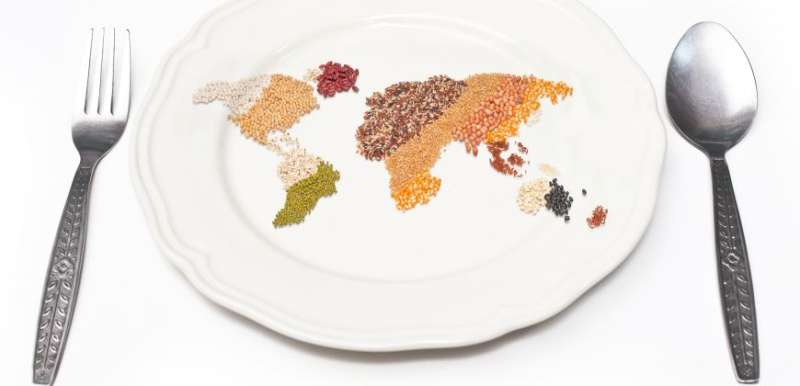Team highlights ways to address global food system challenges

Agriculture now produces more than enough calories to meet basic human dietary needs worldwide. Despite this seeming abundance, one out of eight people do not have access to sufficient food.
A new study, "Realizing Resilient Food Systems," published in the journal Bioscience May 4, 2016 and led by Meagan Schipanski, assistant professor of soil and crop sciences at Colorado State University, presents a set of strategies to address these complex challenges of producing food for a growing global population, while reducing environmental impacts and increasing resilience in the face of climate change.
Schipanski led a collaborative team of researchers from the U.S. and Canada to produce the study, which was supported by funding from the U.S. Department of Agriculture and CSU's School of Global Environmental Sustainability.
"Addressing our food system challenges requires so much more than increasing food production," Schipanski said. "We hope that highlighting real world examples that connect food production with positive outcomes for human health will encourage more work across traditional disciplinary lines and direct engagement with communities." Food systems include consideration of how food is produced, how it is distributed, what is consumed, and who influences these different activities.
Food access disparities
Although there have been significant increases in global crop production, the number of undernourished people in undeveloped countries has not declined. Food prices are more variable in less developed countries, and there are simultaneous diet-related health challenges of malnutrition and overconsumption both within the U.S. and around the world. The root causes of many of these challenges are often less about having enough food and more about poverty and access to resources, particularly women's access to education and resources.
Global case studies
Using case studies from Africa, India, and Brazil, the study highlights the importance of integrated food system strategies. For example, efforts in Malawi have improved human nutrition by integrating more legumes in crop production practices with health and nutrition education. Brazil implemented national programs in 2003 that link rural producers to low-income urban consumers, improving farmer incomes and access to nutritious foods in urban areas. In India, increasing women's access to land and other resources has resulted in benefits for family health and education.
"Meagan's food system study is a clear example of global knowledge converging from the three dimensions of sustainability: economics, society and the environment. It is a novel and useful effort by her integrating team," said Diana Wall, director of the School of Global Environmental Sustainability and a professor in CSU's Department of Biology.
More information: Meagan E. Schipanski et al, Realizing Resilient Food Systems, BioScience (2016). DOI: 10.1093/biosci/biw052
Journal information: BioScience
Provided by Colorado State University


















